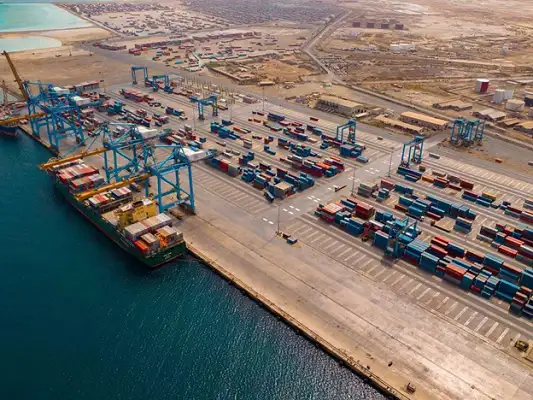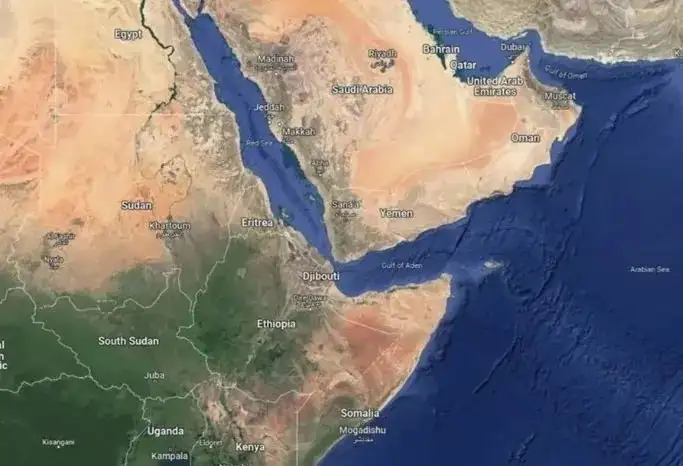By: Fistum Getachew
Population data show that Ethiopia is a country of more than 130 million people, of whom more than 70% are youths below the age of thirty. This demographic profile is true of many countries in Africa. Similarly, statistics show that Ethiopia is also one of the biggest economies in Africa and a country that is growing fast. In the past ten to fifteen years alone, it has been steadily growing at one of the fastest rates, despite the many challenges it had to overcome. There were issues of security and peace in some pockets of the country. In particular, there was the conflict in the north that lasted two years, and the COVID pandemic, which has left its negative mark even on developed countries, let alone those which are poor and without adequate medical facilities and infrastructure. But Ethiopia managed to cope with it, pushing aside all the negative predictions forwarded against it.
All these features tell us that Ethiopia’s march toward a bigger and stronger economy is relentless and unstoppable, and this has been confirmed and testified by academics and researchers in politics and economics, including international financial institutions and think tanks. Ethiopia’s role in the diplomatic world of Africa and more generally in the world has also been growing, owing to its very important geopolitical position in the Horn of Africa.
Besides, Ethiopia’s long and glorious history also makes it an important nation in Africa with its influence. If it has been admitted to the BRICS body, it is not by chance but because it has deserved it. What is more, its contribution to peacekeeping and peacemaking both in Africa as well as in more distant countries, in collaboration and under the auspices of international organizations such as the UN, the AU, and IGAD, has earned it a huge reputation and a relatively notable clout in international affairs.
History tells us that Ethiopia has never been without access to the sea, except during the past thirty years when there were sudden and unexpected developments with the cessation of Eritrea from Ethiopia. If we look deeply at Ethiopia’s long history, it has always had access to the sea with its own ports, but also had a sizeable maritime force with a fleet of its own ships that facilitated its engagement in trade and commerce with the rest of the world.
Today, it is sad to see that it is without access to the sea. This fact has made it a prisoner and isolated in a world of abundance. In fact, it is the only country in the world that is landlocked with such a big population and is so near to the sea, with only some kilometers away.
According to international law, any country which needs access to the sea has the right to seek and obtain it based on international law and practice, with an arrangement of some type with adjacent countries to the sea. It can seek access to the sea based on the principle of "give and take" in a peaceful and diplomatic manner. We have seen such arrangements in many countries. It is a principle that the entire world practices, and there would be no scandal if Ethiopia as well proposed this idea to its neighbors. Clearly, it would be a win-win stance aimed at more integration, not only in economic terms but also in political, diplomatic, cultural, and people-to-people relations.
Economists say that a country without access to the sea would see its economic growth constrained by up to forty percent, which is staggering. Ethiopia cannot afford to limit its growth because it has an expanding population and a growing economy. It definitely needs access to the sea because its economy depends strongly on its continuous and unhindered exchange of trade with other countries. It exports products to the international market to secure the foreign currency it needs to import the materials it needs for its economic progress. It needs to import technological equipment, fertilizers, vehicles, and other products that are not available in the country, such as pharmaceutical and other medical appliances. Hence, access to the sea for Ethiopia is practically an existential issue.
Economists have also noted that if Ethiopia does not have access to the sea, there will be many and unpredictable repercussions, including potentially dangerous scenarios. A population that is growing at the current pace will produce so many people who need employment opportunities, and if the economy does not grow at a pace that accommodates the needs of the country, there would be an explosion of hopeless youths, and this could give birth to many repercussions, including dangers to the security and stability of the country. Unemployed youths are very often susceptible to being recruited for criminal purposes such as terrorism, human trafficking, and even drug trafficking.
There could be the need for these millions of youths to try and emigrate, taking dangerous routes with the complicity of human traffickers. We have seen uncountable times how many have perished in the deserts and how many in the sea, traveling in dangerous and overloaded dinghies. We have noted thousands who have drowned while trying to cross to Europe or the Middle East in search of jobs and economic viability.
We know that a huge crisis is still underway on an international level and the developed countries are trying to cope with this issue by supporting the economies of those countries from where many migrants come, and adding more on that or sabotaging these efforts would be counterproductive. That is also why landlocked countries which cannot have access to the sea are allowed to seek and obtain some sort of arrangement and need to be given the opportunity to grow and prevent such dangerous exodus that has a huge impact even in the advanced economies.
The Horn of Africa is one of the regions that produce many migrants, and the main source of such a crisis is mainly economic, besides certain peace and security issues. Even the political crises of many countries that result in hostilities and conflicts have their origin in economic shortfalls. No one would engage in migration if there were comfortable conditions at home, and the first cause of migration is hence extreme poverty and deprivation.
Ethiopia does not want to contribute to such a crisis, and the only solution is to access the sea and create the conditions for more engagement in more development and progress to liberate its citizens from want and despair. If Ethiopia grows, it could also contribute to the growth of its neighbors because economic integration facilitates more growth, more exchange of commerce and trade, and more prosperity. In reality, the fact that Ethiopia has now built the largest dam in Africa in GERD (the Grand Ethiopian Renaissance Dam on the Blue Nile) can be viewed as one of the factors that would enhance economic integration because neighbors of Ethiopia would have access to cheap and clean energy.
Ethiopia’s current trajectory of growth absolutely needs more outlets to the sea and not to rely on only one or two ports. That is why many say that access to the sea for Ethiopia is a matter of "to be or not to be!" Anyway, Ethiopia is confident that it will find a way to secure access to the sea sooner rather than later because it would also benefit the country that agrees to grant it such access to the sea. The mentality of a zero-sum game should be fought not to keep all our peoples in perennial poverty.




